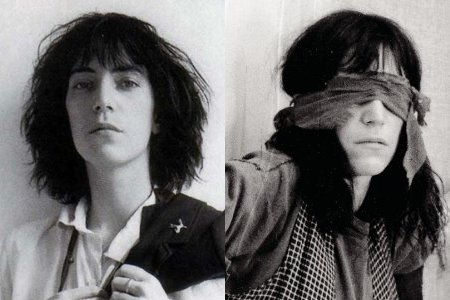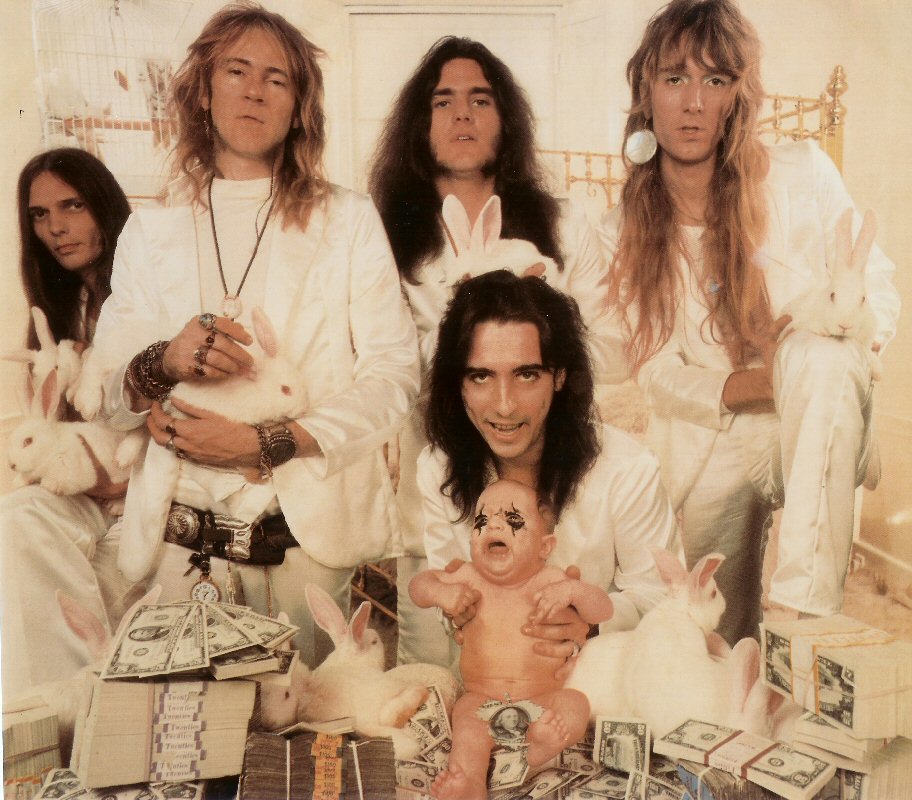Music Review: Patti Smith - Outside Society
If you are looking for the definitive overview of Patti Smith's legendary career, the just released Legacy Recordings compilation Outside Society is not it. The closest thing out there to that sort of comprehensive retrospective of Smith's groundbreaking work, complete with prerequisite rare tracks and alternate takes, remains the Land (1975 - 2002) compilation — and that set focuses mainly on her years with Arista Records.
However, as a brief introduction to Patti Smith, Outside Society works well enough as a sampler. You might even call this album a kind of greatest hits set from an artist who really didn't have any (save for "Because The Night," the collaboration with Bruce Springsteen that remains her most famous song).
 Outside Society (which takes its name from a lyric to her song "Rock And Roll Nigger") is mostly notable because it draws equally from all phases of Patti Smith's 35 years as a recording artist. It brings material from both the Arista and Columbia Records eras together for the very first time on a single disc.
Outside Society (which takes its name from a lyric to her song "Rock And Roll Nigger") is mostly notable because it draws equally from all phases of Patti Smith's 35 years as a recording artist. It brings material from both the Arista and Columbia Records eras together for the very first time on a single disc. The only real complaint here, is that by following the sort of "greatest hits" mentality that apparently went into the making of this collection (despite the active participation of Patti Smith herself), Outside Society really only skims the surface. The way that longer, more expressive pieces like "Birdland" and "Land" (from Patti Smith's brilliant 1975 debut album Horses), are glossed over in favor of shorter, more radio ready songs is likely to be a disappointment to long time fans.
It is tone poems like these that helped make Patti Smith's reputation as punk rock's original reigning queen of spoken word, stream of consciousness poetry in the seventies. Here, they are overlooked to focus on more traditionally structured rock songs like "Because The Night" and "Summer Cannibals," as well as her cover versions of songs like Kurt Cobain's "Smells Like Teen Spirit" and Roger McGuinn's "So You Want To Be A Rock And Star." In that respect, Outside Society really only presents one side of this multifaceted artist.
Even so, there is still a lot to like here. Outside Society covers all the bases in terms of being a well rounded collection of the hits. From "Gloria" and "Because The Night" to "Dancing Barefoot" and "People Have The Power," the song selection does a great job of gathering her career highlights together on a single disc.
Patti Smith's poetic talents do not go completely unnoticed here either. The inclusion of songs like "Pissing In A River," "Free Money" and "Aint' It Strange" accomplishes that trick nicely (if too briefly), as does her blazing performance of "Rock And Roll Nigger" (which is thankfully unedited here). Patti Smith's gift for interpretation is best showcased here with her version of Cobain's "Teen Spirit," which is broken down into a minimalist dirge that is simply spellbinding.
Longtime fans will also appreciate the inclusion of liner notes written by Patti Smith herself, where she offers her own impressions on each of the eighteen songs in this collection. As a career defining anthology, Outside Society is anything but complete. For that, fans would be far better served with Land, or by just picking up a copy of Horses (still her best). But for first timers in search of a quick test drive, you could do a lot worse than this.
This article was first published at Blogcritics Magazine.



 The question here is, do the Mudd boys pull it off? Surprisingly, the answer is mostly yes.
The question here is, do the Mudd boys pull it off? Surprisingly, the answer is mostly yes. 


 To put this in its proper perspective, the original 1975 album Welcome To My Nightmare was Alice Cooper's first album without the guys responsible for his brief, but meteoric ride — roughly 1972-1974 — from freak sideshow cult status, to arguably the biggest selling album artist and concert attraction in the entire world.
To put this in its proper perspective, the original 1975 album Welcome To My Nightmare was Alice Cooper's first album without the guys responsible for his brief, but meteoric ride — roughly 1972-1974 — from freak sideshow cult status, to arguably the biggest selling album artist and concert attraction in the entire world. 
